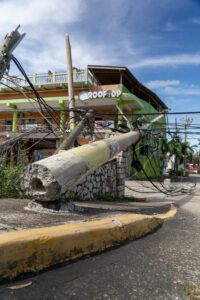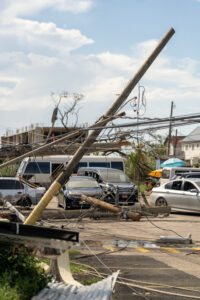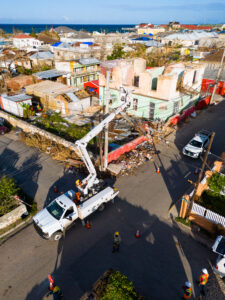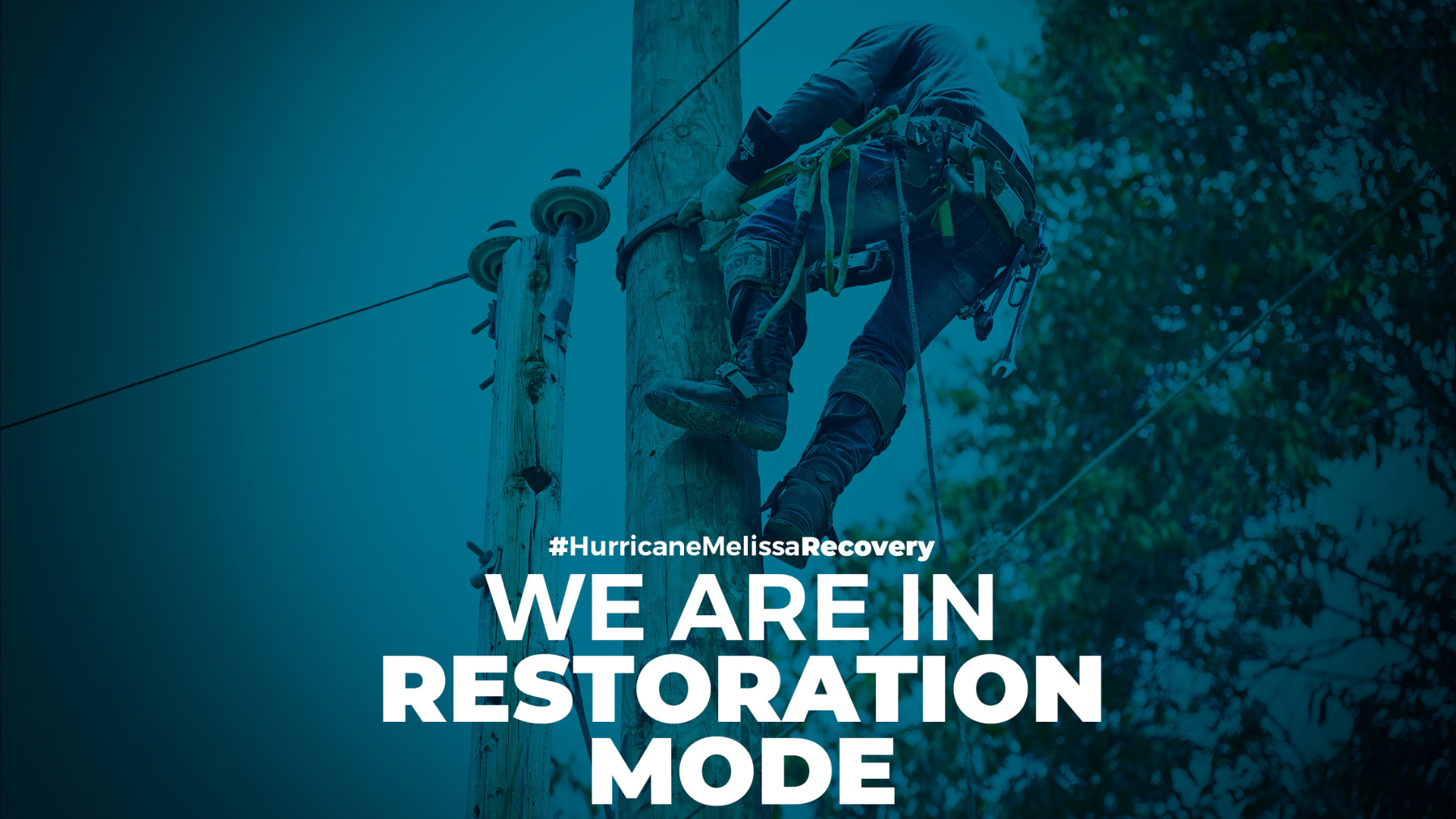
AS AT FRIDAY JANUARY 9, 2025
0%
0%
(Down from 77%)
Key Sites Restored
Major Private and Public Hospitals
Kingston & St. Andrew
• Andrews Memorial Hospital
• Bellevue Hospital
• Bustamante Hospital For Children
• Kingston Public Hospital
• National Chest Hospital (NCH)
• Nuttall Memorial Hospital
• St. Joseph’s Hospital
• University Hospital Of The West Indies
• Victoria Jubilee
St. Catherine & Portmore
• Linstead Hospital
• Spanish Town Hospital
St. Thomas
Princess Margaret Hospital
Trelawny
• Falmouth Hospital
Manchester
• Hargreaves Hospital
• Mandeville Regional Hospital
• Percy Junior Hospital
Clarendon
• Chapelton Hospital
• Lionel Town Community Hospital
• May Pen Hospital
St. James
• Cornwall Regional Hospital
St. Mary
• Port Maria Hospital
• Annotto Bay Hospital
St. Ann
• St. Ann’s Bay Hospital
St. Elizabeth
• Black River Hospital
RESTORATION STATUS
CUSTOMERS RESTORED:
All parishes now have customers restored in some sections. Notable progress continues to be made in western parishes that were hardest hit by Hurricane Melissa, with several customers having been restored. However, widespread damage requires major network rebuilding, which is under way.
- As of Friday, January 9, approximately 92% of customers have supply. Approximately 8% of customers remain without power, down from 77% at the start of restoration.
- All Christmas targets have been met
- 95.2% of Manchester now with power surpassing the 95% target
- 82.2% of Trelawny now in surpassing the 75% target
- Black River Hospital now energized
- Work continues across the island, with priority still being given to critical sites, economic zones, and town centres in the hardest hit parishes.
Restoration Highlights Within the Last 24 Hours
- In St. Elizabeth
- Two (2) NIC Pumps in Hounslow
- Grace Agro Processing Plant
- In St. James
- NWC Pumps in Clifton, Chelsea, and Cambridge were restored
SYSTEM STATUS
Available Generation Capacity: At 8:00 am, approximately 773 MW of firm generation is available to meet a forecasted peak demand of 492 MW.
- Renewables: Solar and wind are dispatched as available and in a manner to maintain grid stability.
- Natural Gas: SJPC, Excelerate Energy CHP and Hill Run are online
DAMAGE ASSESSMENT
Damage assessment has been completed on 100% of transmission lines and substations and 100% of distribution feeders
Restoration In Action
Our crews have been working all across the island, around the clock to restore power and help rebuild Jamaica.
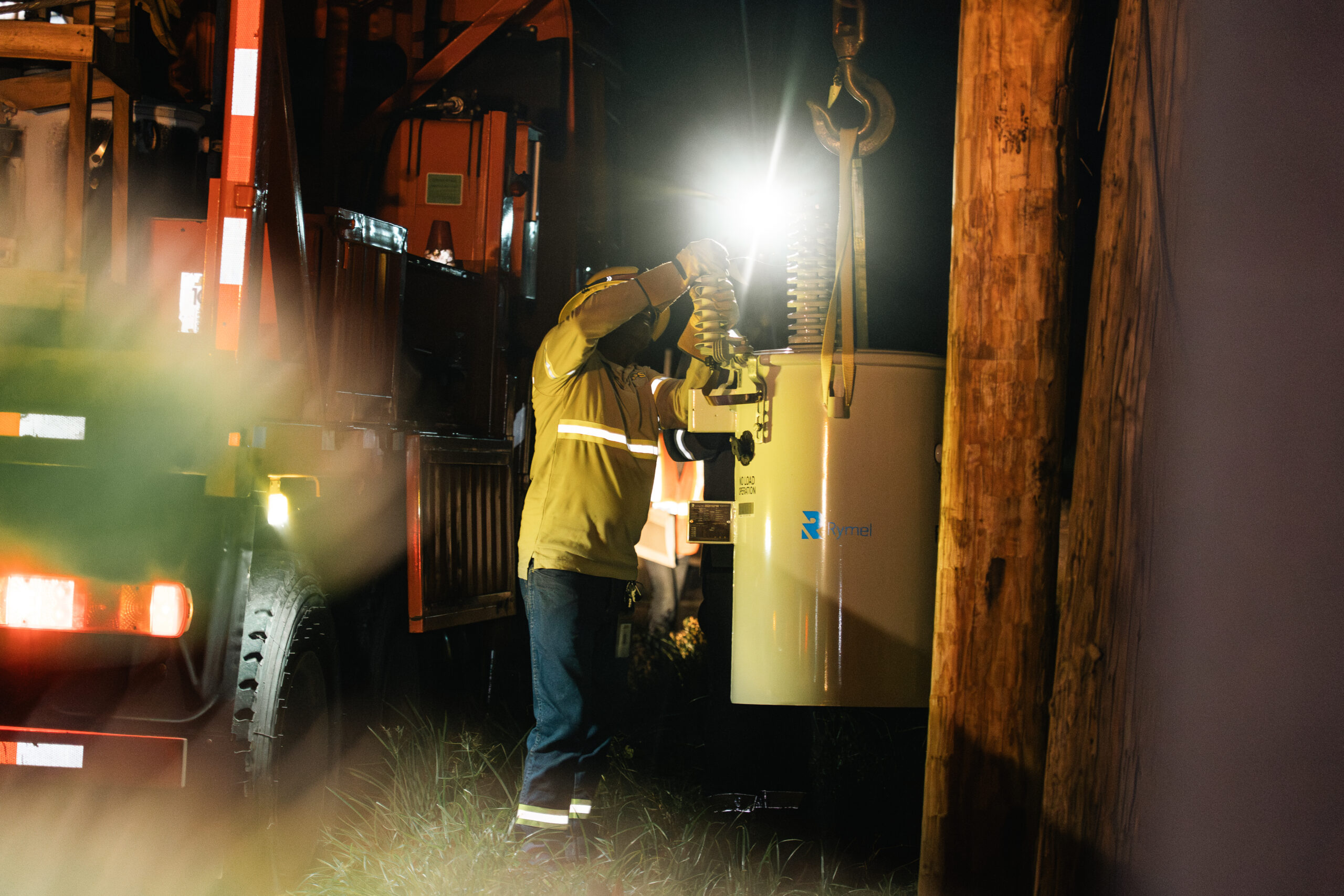
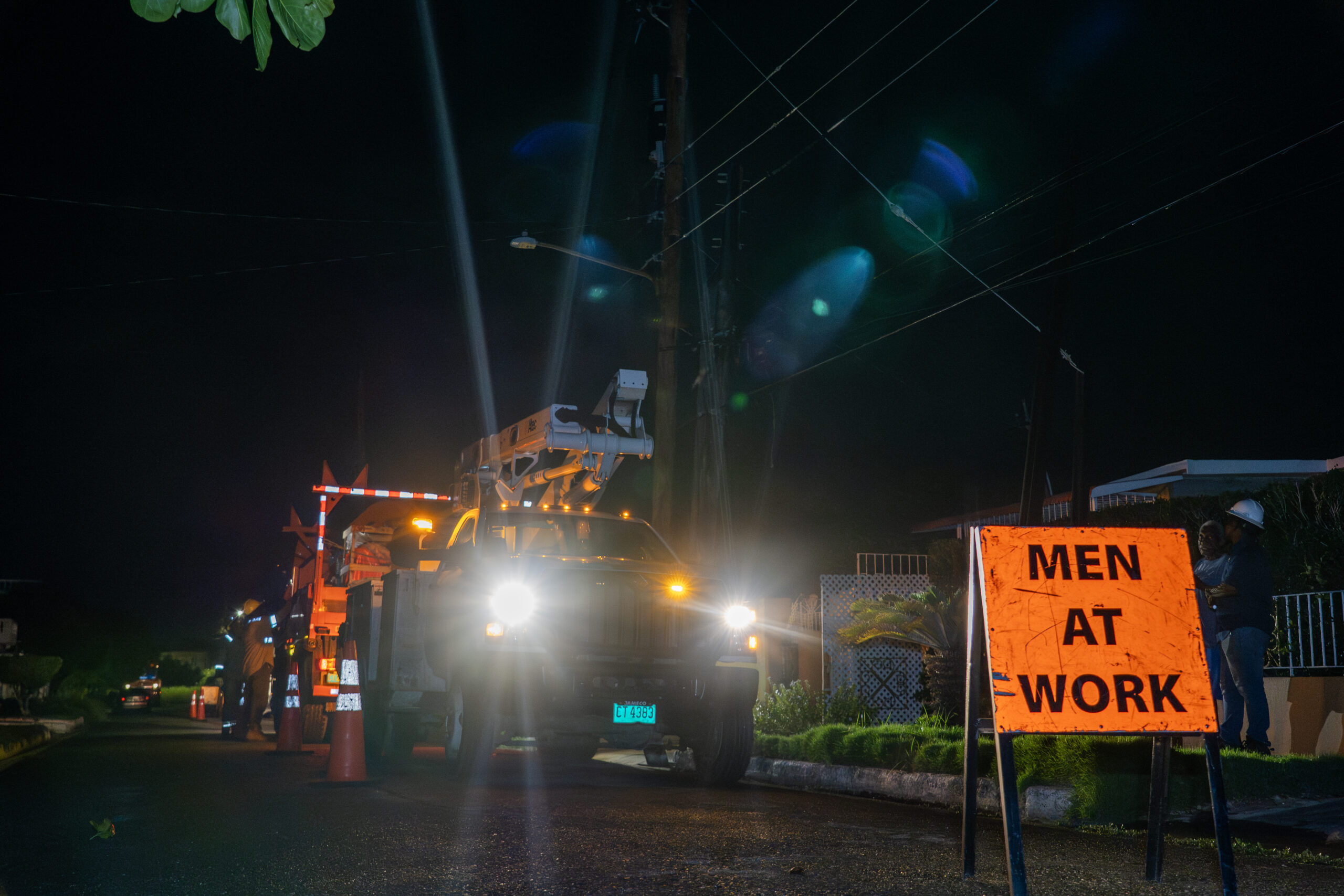
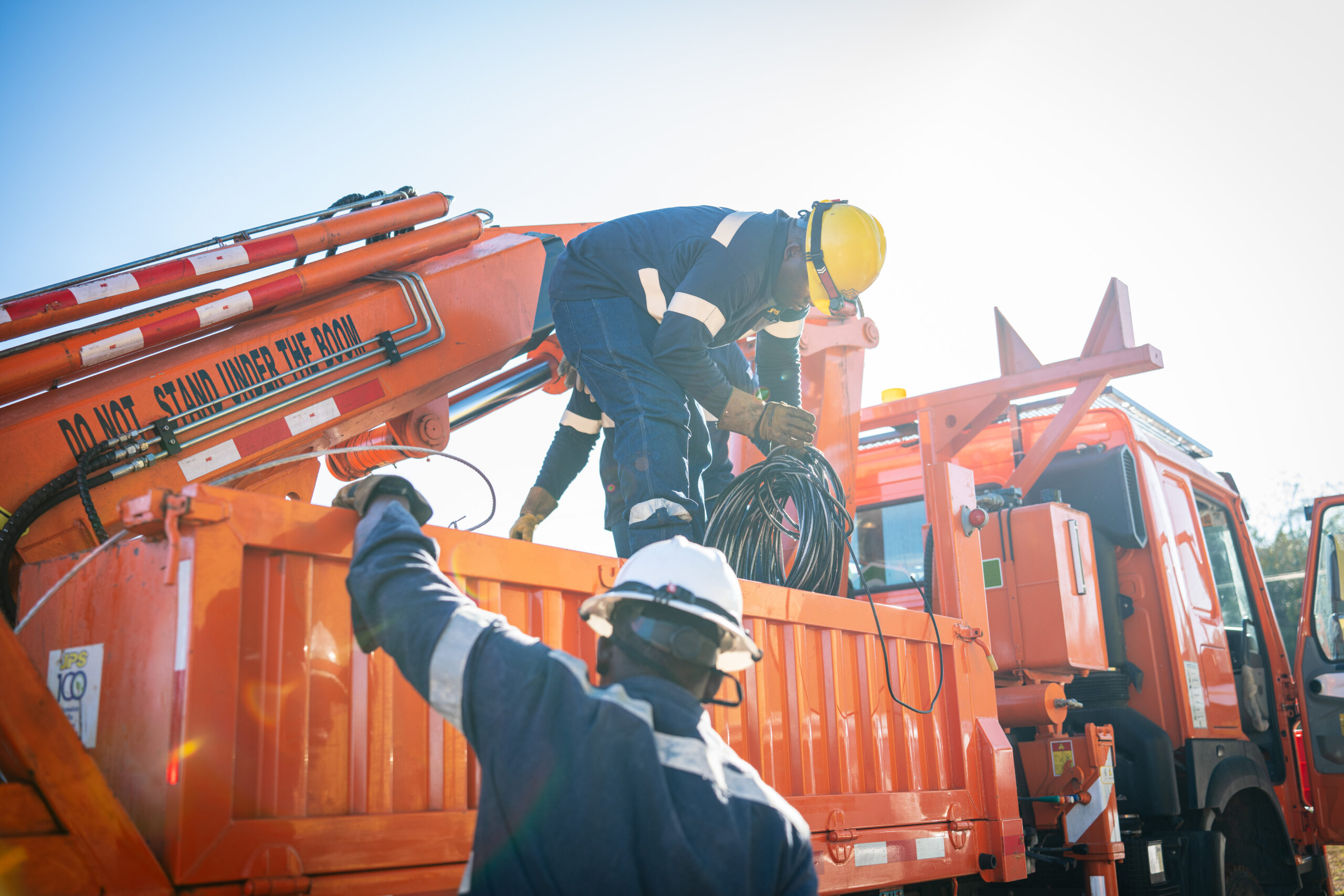
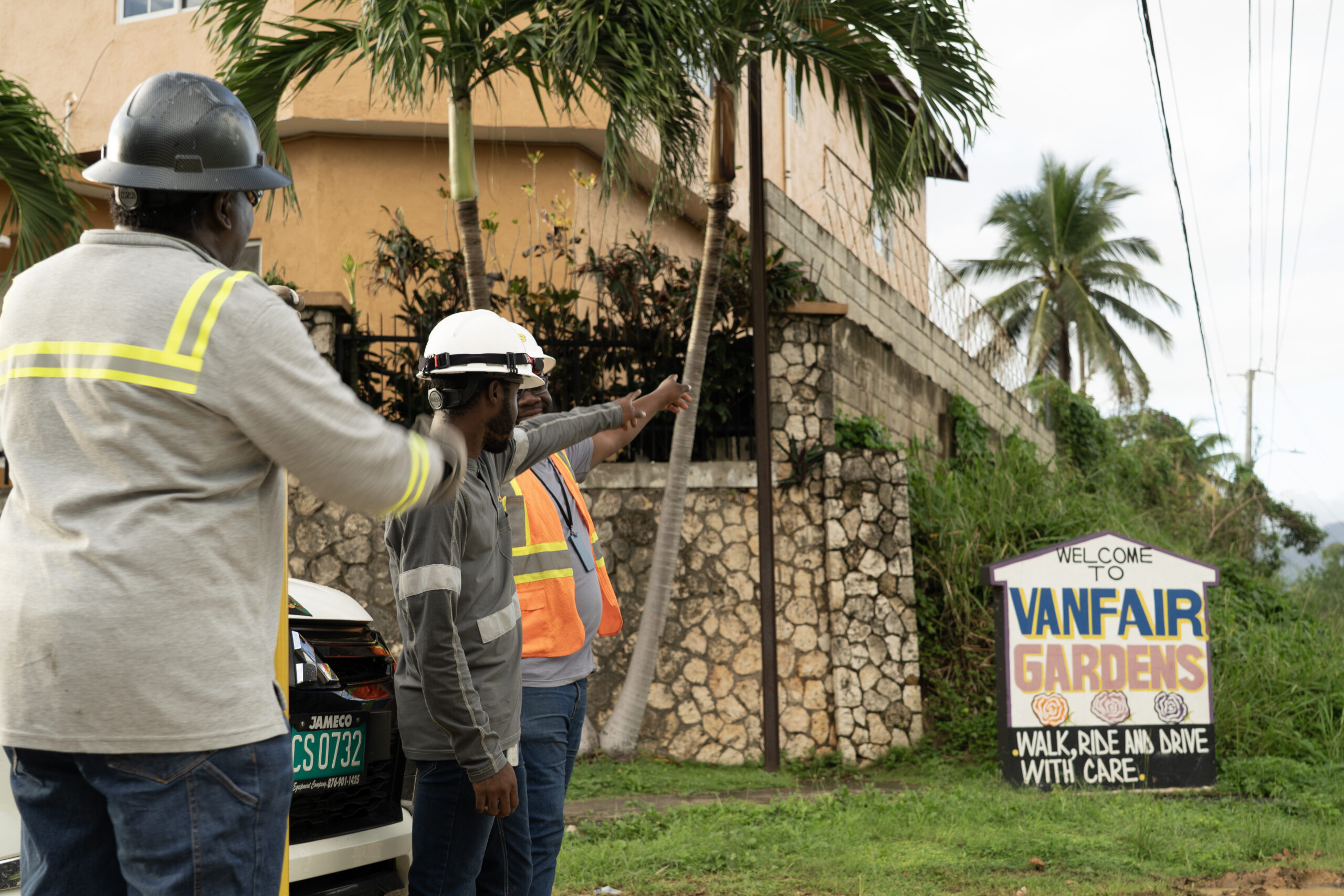
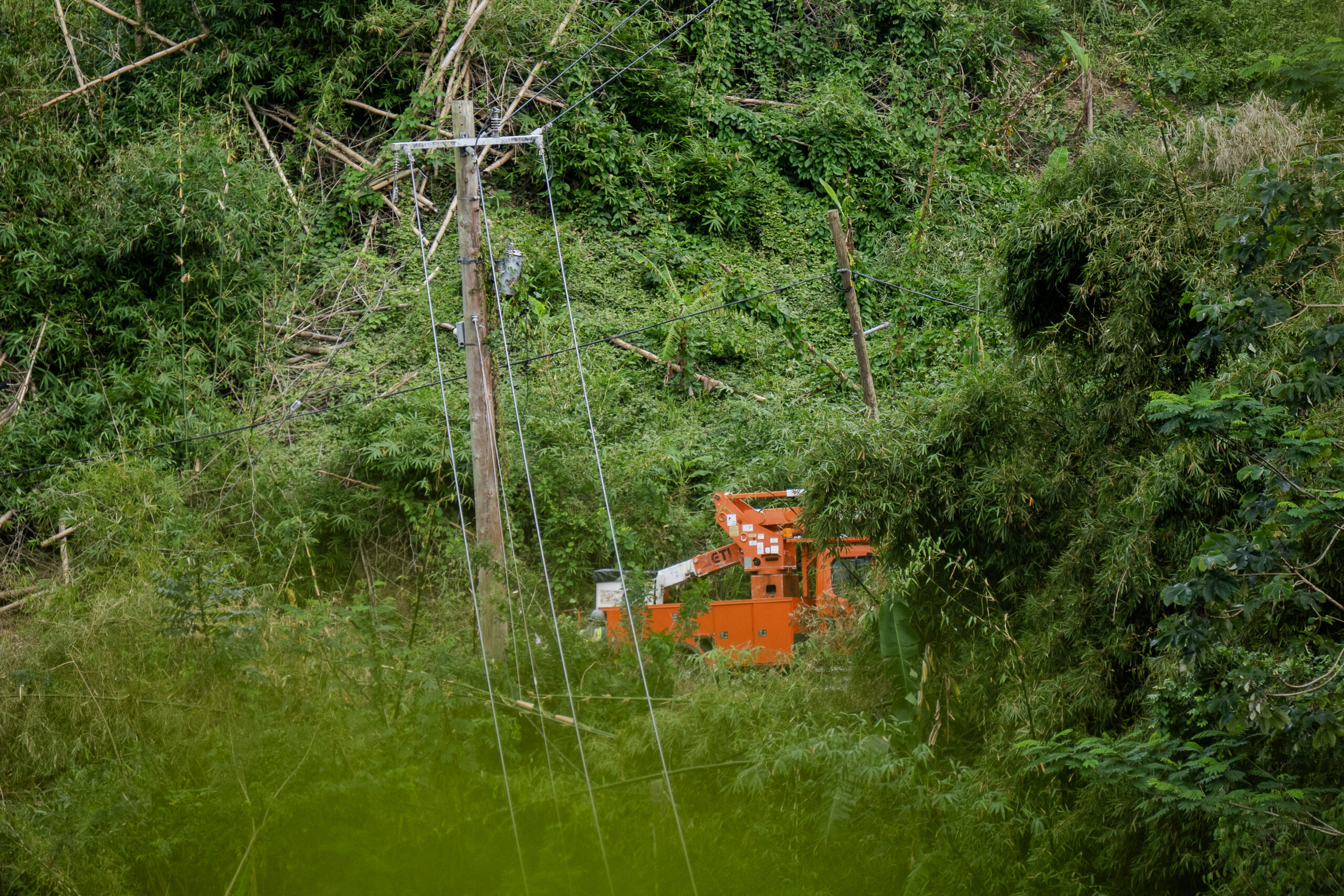
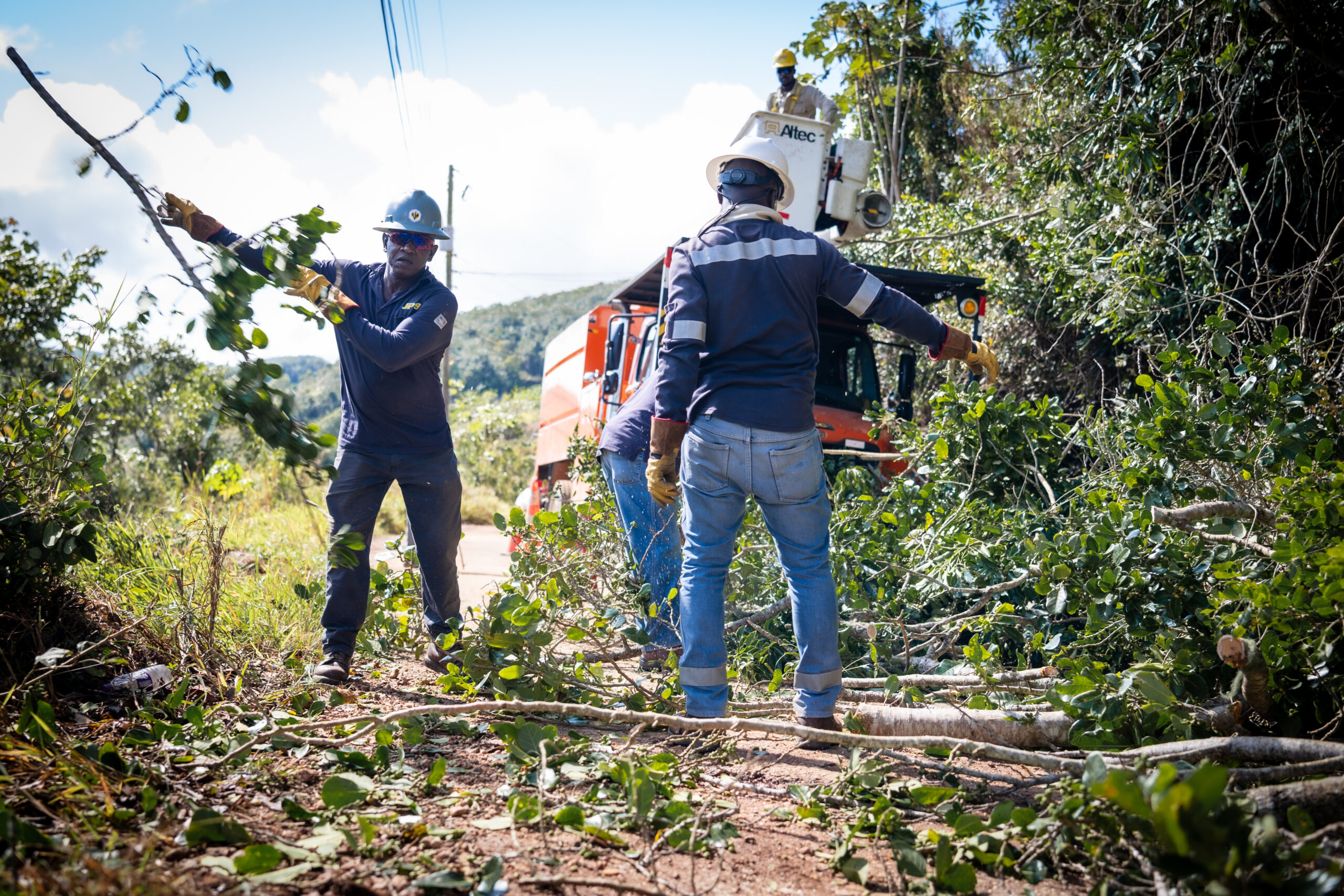
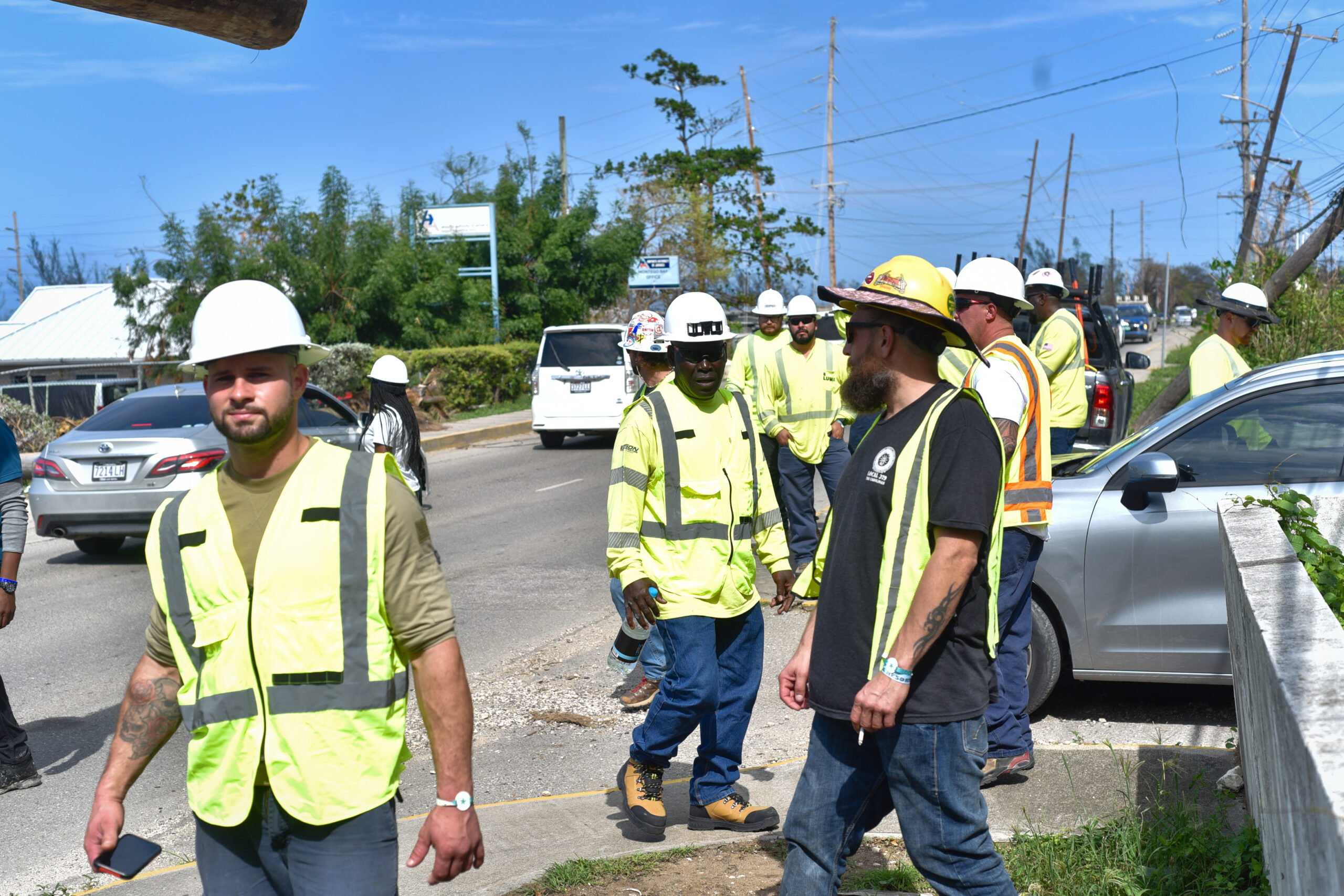
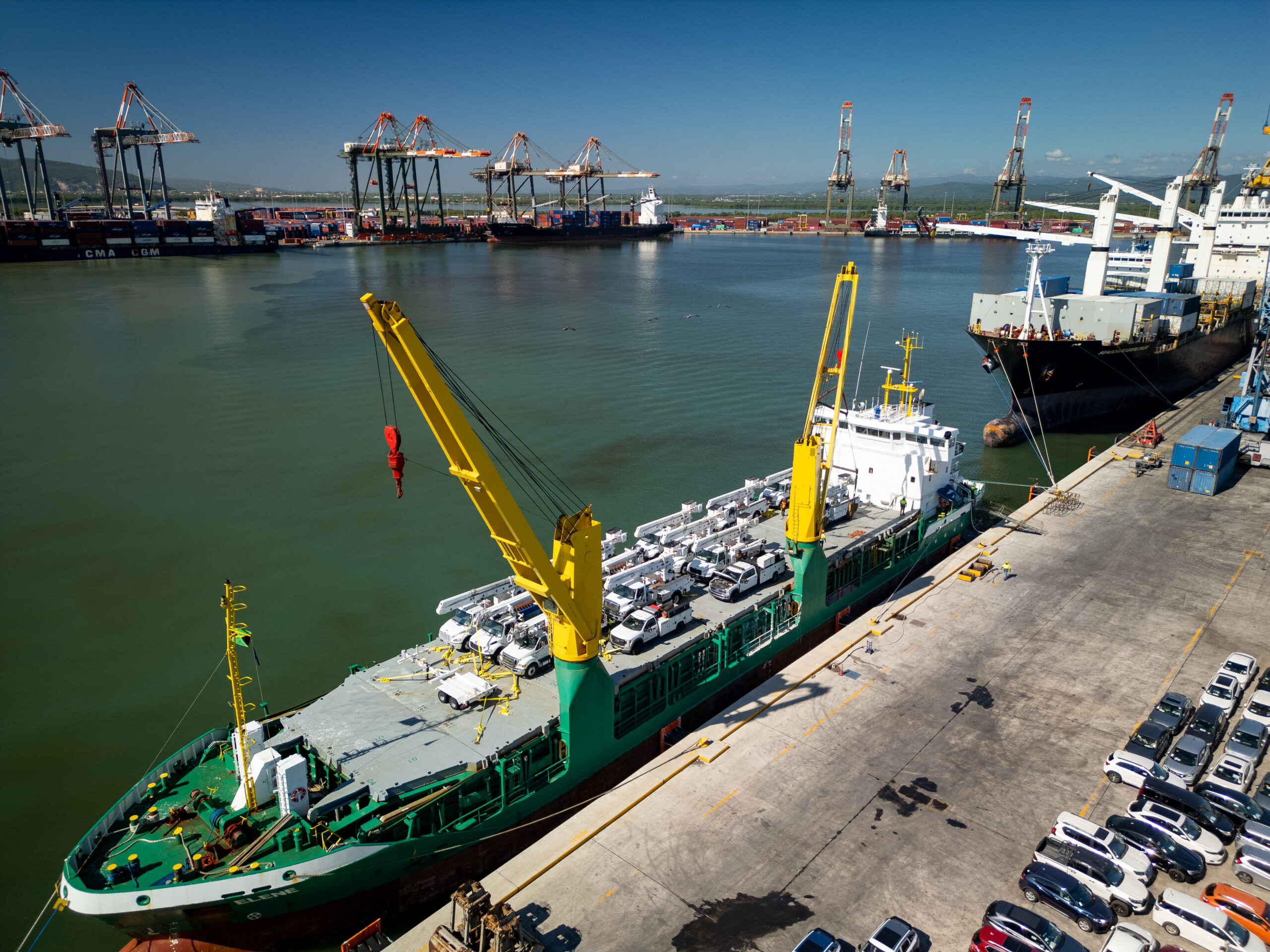
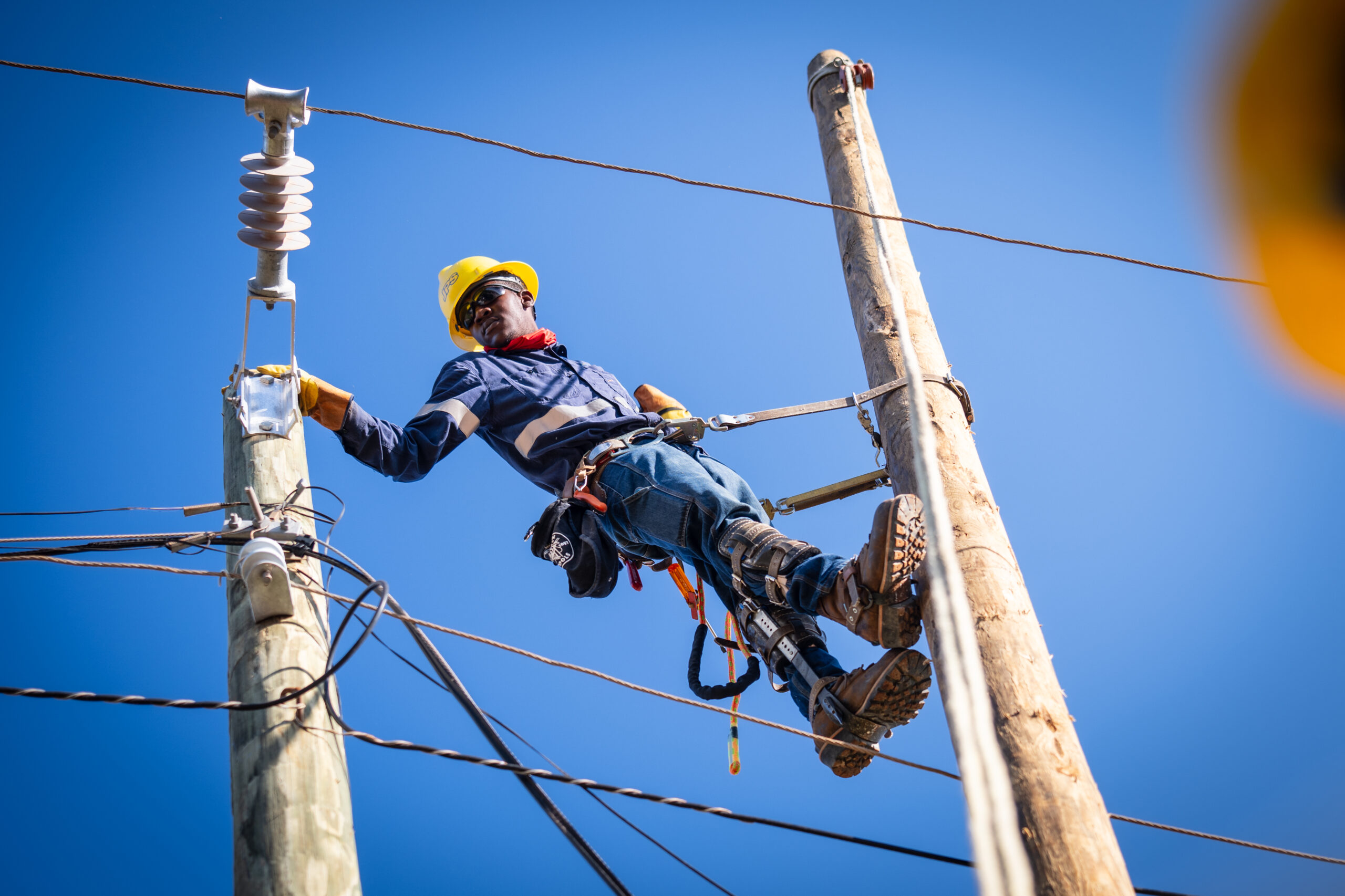
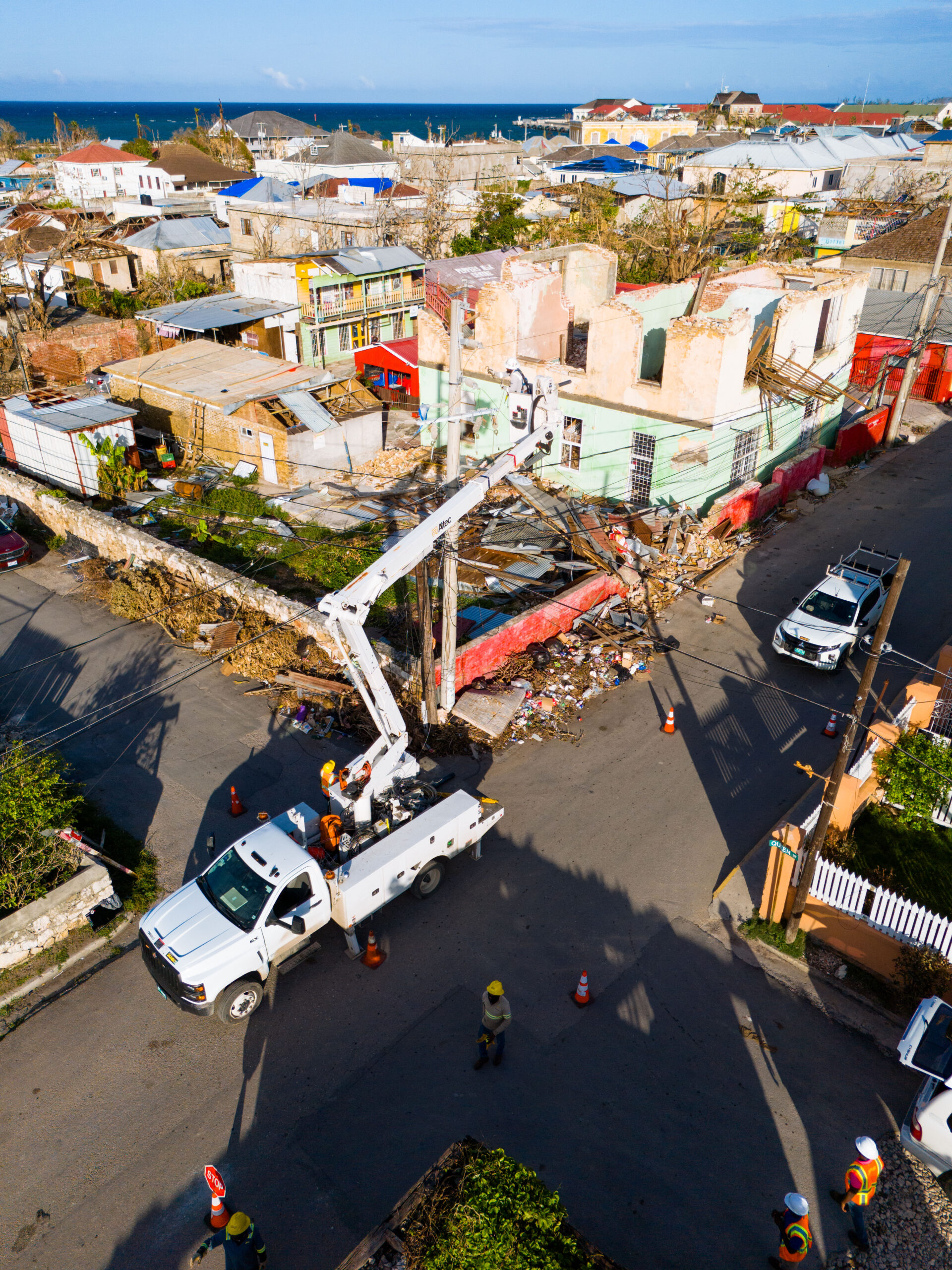
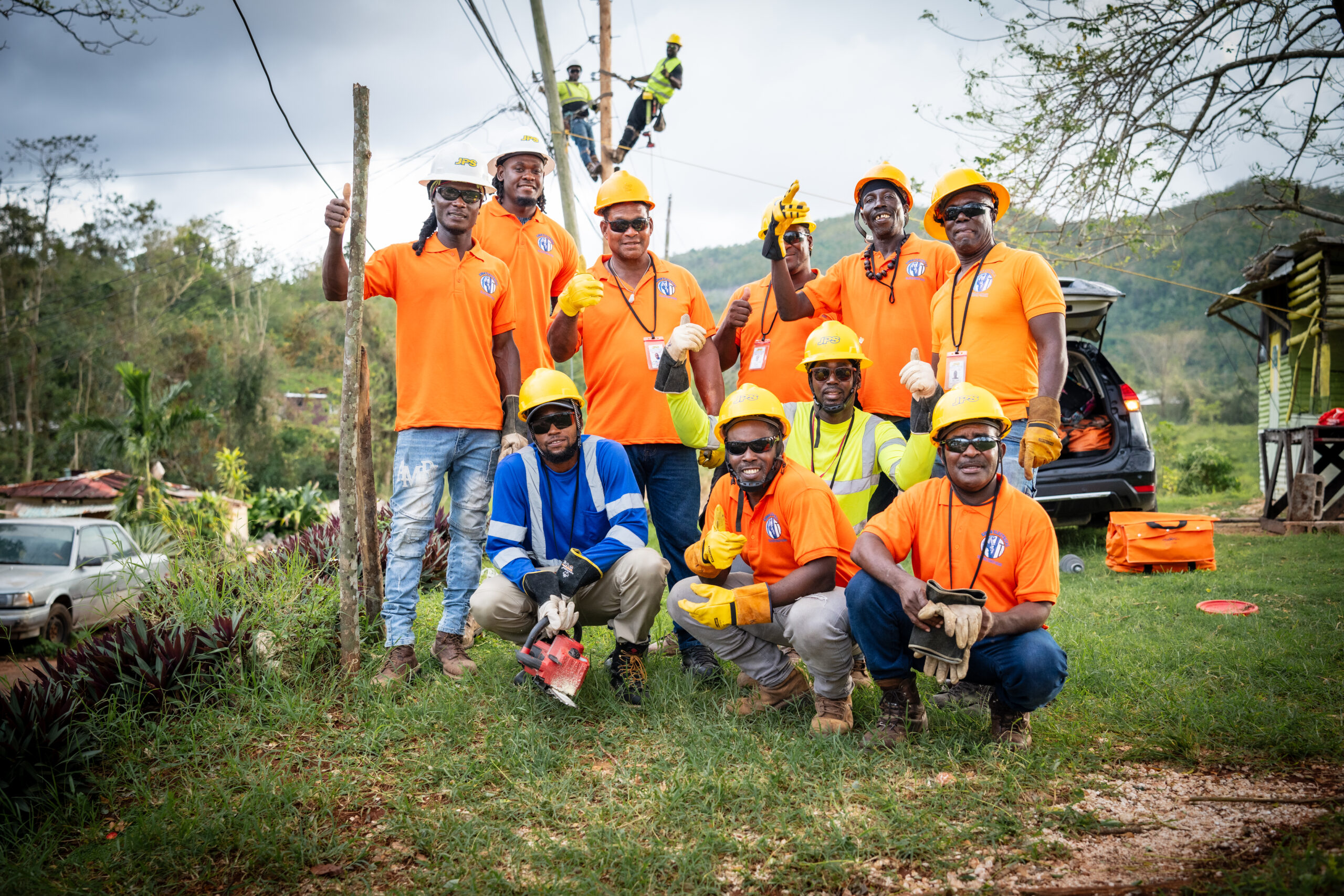
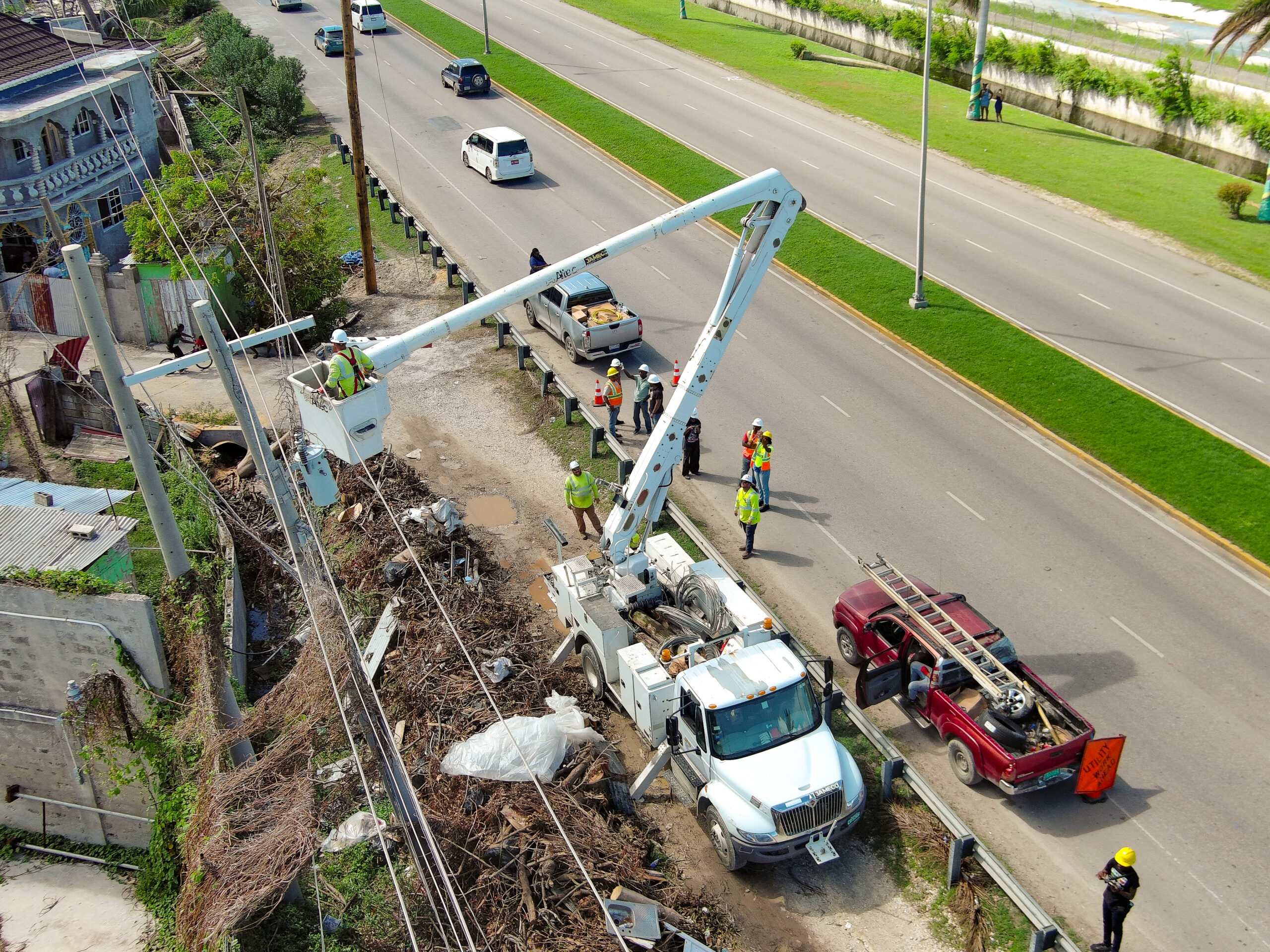
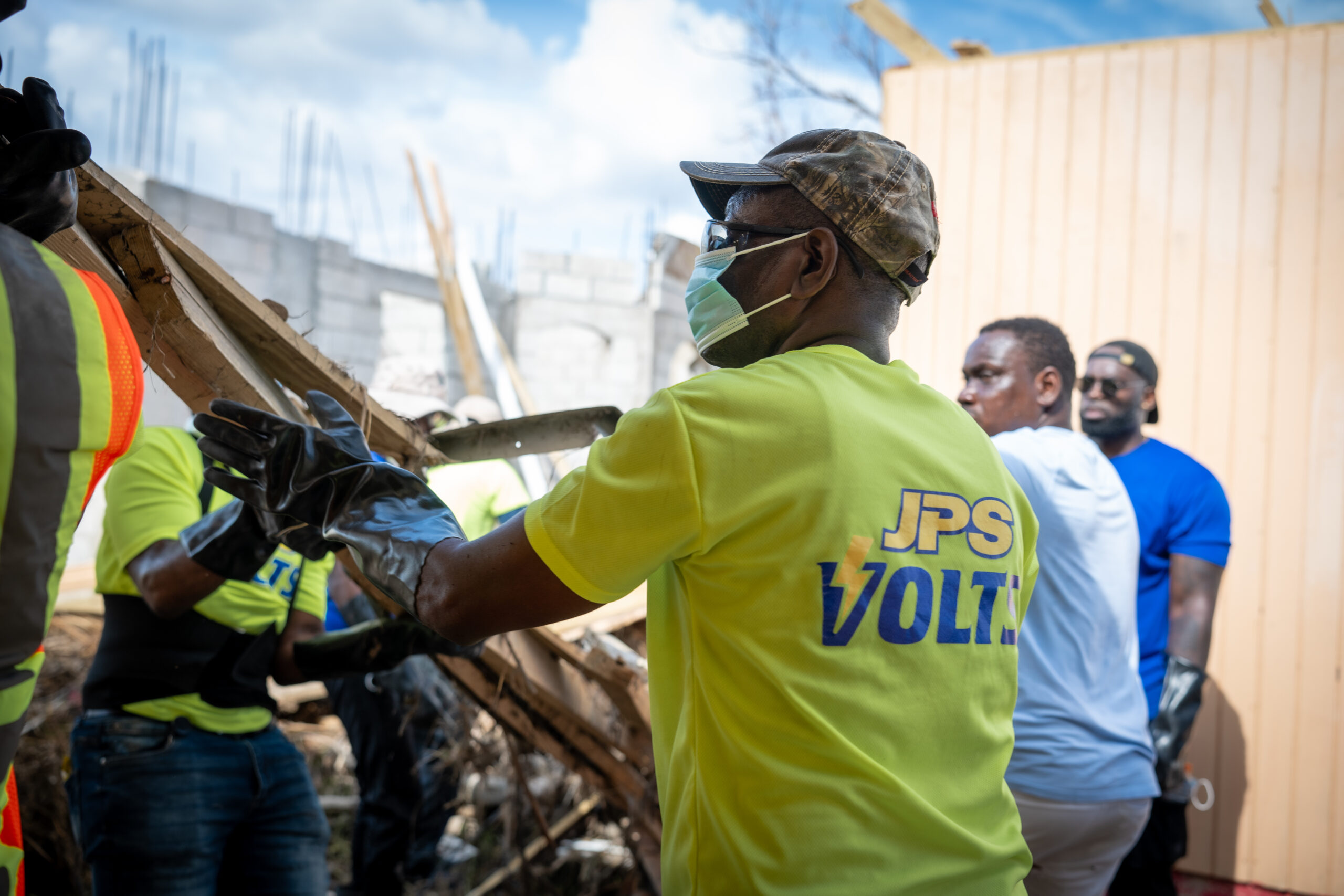
ANSWERS TO FREQUENTLY ASKED QUESTIONS
Will I lose electricity if a hurricane affects Jamaica?
It’s best to be prepared for power outages. Strong winds and heavy rain from a hurricane can cause damage to the power system, resulting in outages. And, depending on the severity of the hurricane, JPS may make a decision to proactively shut down the grid to limit damage to the network.
How is JPS preparing for the Hurricane Season?
JPS’ preparation for the hurricane season starts almost as soon as one season ends. We focus on structural integrity – strengthening the power delivery network by replacing poles and lines, and upgrading equipment. We also pre-order and stockpile material, in anticipation of the increased demand for these items to repair the grid after a hurricane.
An intensive ongoing vegetation management programme is implemented to reduce the impact of trees on the power lines, in the event of a storm or hurricane. The removal of ‘danger trees’ that could cause power outages is an important part of JPS’ hurricane preparations. The company is therefore working with contractors across all parishes to remove trees that threaten power lines. JPS is also urging customers to keep their trees from growing close to the power lines.
People preparation is an integral part of hurricane preparations. We ensure proper training of staff and contractors. Several hurricane drills are carried out before the start of the hurricane season, to ensure team members are familiar with their storm roles and ready to respond in the event of a hurricane.
JPS has also established formal arrangements with local and overseas partners, so we can call on additional resources if the need arises.
How should customers prepare for the season?
Here are five (5) things you need to do, as the hurricane season approaches
- PREPARE FOR OUTAGES: Make sure you have back-up lighting such as flashlights, candles or lamps. Get a battery-powered radio and extra batteries. If you have a generator, get it serviced and have adequate fuel on hand. When a hurricane threatens, charge up your phones and other devices, and turn your refrigerator to its coldest setting, so it stays cool longer.
- CUT TREES: Where it is safe to do so, trim trees around your property to prevent them from falling on power lines or your house. If the trees are already close to, or touching the lines, contact JPS for advice and /or assistance.
- CHECK & SECURE ELECTRICAL INSTALLATIONS: Check your service wires, solar panels and other installations. If you notice loose or exposed wires, corrosion or rust, get a licenced electrician to fix them now.
- CLEAR DEBRIS FROM YOUR YARD: Remove items that could be blown away and become missiles, putting you and others at risk. Secure outdoor furniture, gas cylinders, and other items that could be dislodged by strong wind or flooding.
- CONNECT WITH JPS: Download the MyJPS Mobile App, so you can keep in touch with JPS before, during and after a storm with the. Also, make sure that JPS has your current cell phone number and email address, so we can send you regular updates and important information to help you through the hurricane and the restoration process.
Will JPS cut customers’ trees?
JPS is not responsible for the maintenance of trees on private property. However, where there are safety concerns, JPS will provide guidance and assistance. If the tree on your property is close to, or already touching the power lines, contact JPS. Do not attempt to cut trees that are close to power lines.
It is very important to keep your trees from growing into power lines, in the first place. If you already have trees that could grow into the lines, keep them pruned to avoid contact.
Better yet, we recommend that you protect your electricity supply by removing all trees that could grow into the power lines. Replace them with plants that will not grow tall enough to touch the lines. Safe and attractive options include crotons, bougainvillea, Jamaican cherry and dwarf coconut palms. Large trees like mango, otaheite apples, ackee, or bamboo, should be planted at least 10 feet away from power lines.
What exactly is JPS doing to reduce power cuts during the hurricane season?
We are investing in smart grid technology to help improve service reliability and make the grid more resilient. The smart technology will limit the extent of outages and the number of customers affected, and also make it easier to restore supply after a hurricane. In addition, our ongoing maintenance programme involves a number of activities to reduce the impact of adverse weather conditions on the grid. These activities include: pole replacement and repair, and infrastructure and equipment upgrades.
Why doesn’t JPS put the lines underground to reduce the number of power cuts?
While there are advantages to having lines underground, it could cost up to 10 times more to have an underground network, compared to an overhead network. This is not a cost JPS’ customers are willing to pay at this time.
Do I need to turn off my breaker when the hurricane starts?
You will need to turn off your circuit breaker if there’s a risk of flooding in your home, if you have to evacuate, or if the power supply gets unstable because of strong winds. Make sure family members know where to find the breaker and how to turn it off.
I have a generator, but I haven’t used it in a while – do I need to have it serviced even though I might not need it?
Yes, get your generator thoroughly checked by a professional.

